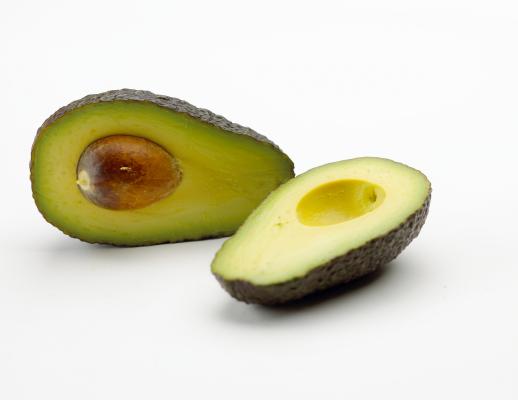
January 13, 2015 — Our daily diet may help lower bad cholesterol, in turn reducing risk for heart disease, according to health researchers in the Jan. 7 edition of the Journal of the American Heart Association. Avocados are known to be a nutrient-dense food, high in monounsaturated fatty acids. Previous studies have suggested that avocados are a cholesterol-lowering food, but this is the first study — to the researchers' knowledge — to look at health implications of avocados beyond monounsaturated fatty acids.
"Including one avocado each day as part of a moderate-fat, cholesterol-lowering diet compared to a comparable moderate-fat diet without an avocado provides additional LDL (low-density lipoproteins) lowering affects, which benefit CVD [cardiovascular disease] risk," said Penny M. Kris-Etherton, distinguished professor of nutrition at Penn State University.
Kris-Etherton and colleagues tested three different diets, all designed to lower cholesterol: a lower-fat diet, consisting of 24-percent fat; and two moderate-fat diets, with 34 percent fat. The moderate fat diets were nearly identical, however one diet incorporated one Hass avocado every day while the other used a comparable amount of high oleic acid oils, such as olive oil, to match the fatty acid content of one avocado. Hass avocados are the smaller, darker variety with bumpy green skin and have a higher nutrient content than Florida avocados, which are larger and have smoother skin and a higher water content.
The researchers tested the diets with 45 healthy, overweight adults between the ages of 21 and 70. Compared to the participants' baseline measurements, all three diets significantly lowered LDL (“bad cholesterol”) as well as total cholesterol. However, participants experienced an even greater reduction in LDL and total cholesterol while on the avocado diet, compared to the other two diets.
The avocado diet decreased bad cholesterol by 13.5 mg/dL, while LDL was decreased by 8.3 mg/dL on the moderate-fat diet and by 7.4 mg/dL on the low-fat diet.
All participants followed each of the three diets for five weeks. They were given a two-week break in between each diet. Blood samples were taken at the beginning and end of each study period. Subjects were randomly assigned the order in which they received each diet.
"This was a controlled feeding study, but that is not the real world — so it is more of a proof-of-concept investigation," said Kris-Etherton. "We need to focus on getting people to eat a healthy diet that includes avocados and other food sources of better fats."
She pointed out that much of the U.S. population doesn't know how to use or prepare avocados, with the exception of guacamole. However, guacamole is usually eaten with corn chips, which are high in both sodium and calories.
"People should start thinking about eating avocados in new ways," said Kris-Etherton. "I think using it as a condiment is a great way to incorporate avocados into meals — for instance, putting a slice or two on a sandwich or using chopped avocado in a salad or to season vegetables."
Kris-Etherton and colleagues note that further research will need to be conducted with a larger and more diverse study sample and to explore further how high-density lipoproteins (“good cholesterol”) might be affected by a diet that includes avocados.
For more information: www.nutrition.hhd.psu.edu


 January 05, 2026
January 05, 2026 









